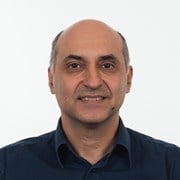
Permanent or seasonal eutrophic and anoxic coastal basins, fjords and lakes constitute a transnational challenge across Europe. The problem is usually caused by land-based human activities that result in the strengthening of stratification or in high loads of nutrients and organic matter into water bodies with poor circulation.
The wastewater from rural, agriculture and inland urban areas is a main source for land/water pollution, and a major challenge for downstream users. The pollution is characterized by organic and inorganic contaminants that originate with dissolved contents of fertilizers, chemical runoff (pesticides), urban cleaning agents, human waste, livestock manure and nutrients. Climate change exacerbates oxygen decline in coastal systems through similar mechanisms as those in the open ocean, as well as by increasing nutrient delivery from watersheds that will experience increased precipitation. Expansion of low-oxygen zones can increase production of N2O, a potent greenhouse gas.
The challenges addressed in BLUE-GREENWAY can only be tackled through a cooperative, coordinated, transnational approach between European countries on common European challenges. In addressing these challenges, major advances have been provided by ocean engineering. Improved numerical models of oceanographic processes that control oxygen depletion are needed to predict the magnitude and patterns of deoxygenation in the sea. Norway is a leader in this research. Our expertise partners (SINTEF Ocean and Fugro Oceanor) will guide us in establishing real time monitoring, early warning systems and modern numerical models (SINMOD).
BLUE-GREENWAY addresses the intertwined common challenges of the sea-land chain by treating the pollution problems of eutrophic and anoxic coastal ecosystems (sea) that result from land-based and other pollution sources and by focusing on green procurement of products and services in wastewater management (land).
|
Agenda, 21 September 2023 |
|
|
9:00 – 9:10 |
Registration |
|
9:10 – 9:20 |
Welcome by host partner Bård Wathne Tveiten SINTEF Ocean, Norway |
|
9:20 – 9:40 CET |
The problem of marine pollution Mimmi Throne-Holst SINTEF Ocean, Norway |
|
9:40 – 10:00 CET |
An introduction to BLUE-GRENWAY project Prof. Y. Stephanedes University of Patras, Greece |
|
10:00 – 10:20 CET |
An introduction to SINMOD model Dr. Øyvind Knutsen SINTEF Ocean, Norway |
|
10:20 – 10:40 CET |
Natural and modified clays for eutrophication control Irene Biliani University of Patras, Greece |
|
10:40-11:00 CET |
Coffee Break |
|
11:00 – 11:30 CET |
Green Procurement Systems in Eutrophic and Anoxic areas Harry Xiarchis University of Patras, Greece Ch. Panayiotou Atlantis Consulting, Cyprus |
|
11:30 – 11:50 CET |
Hydrodynamic & biological modelling in the Ionian Sea, Gulf of Patras, Aitoliko Lagoon based on SINMOD Dr. Christos Stefanakos SINTEF Ocean, Norway |
|
11:50 – 12:00 CET |
Closing |
|
12:00 – 13:00 CET |
Lunch |

